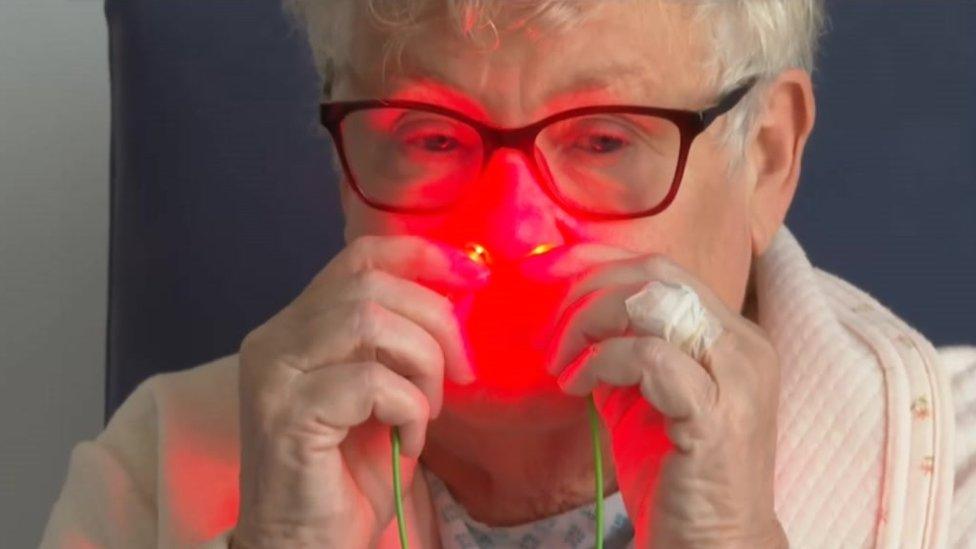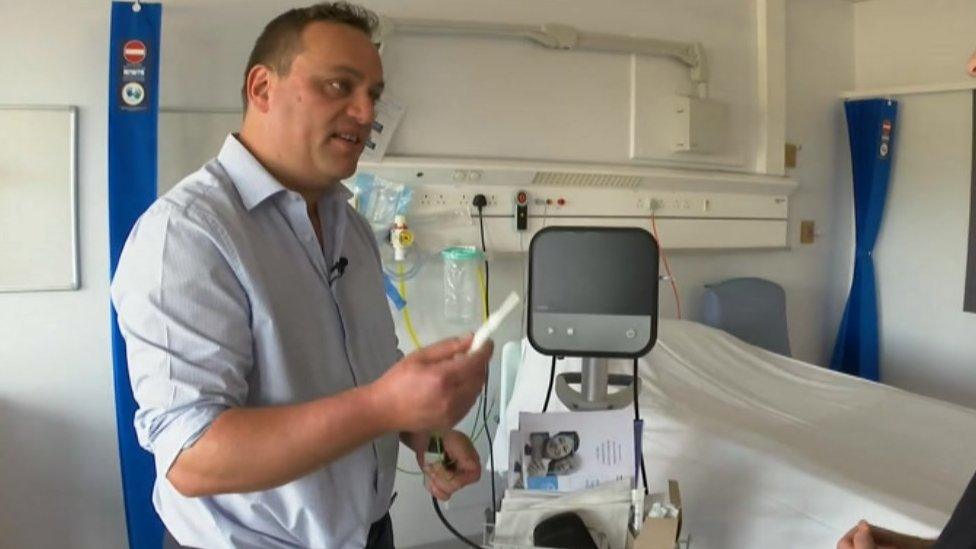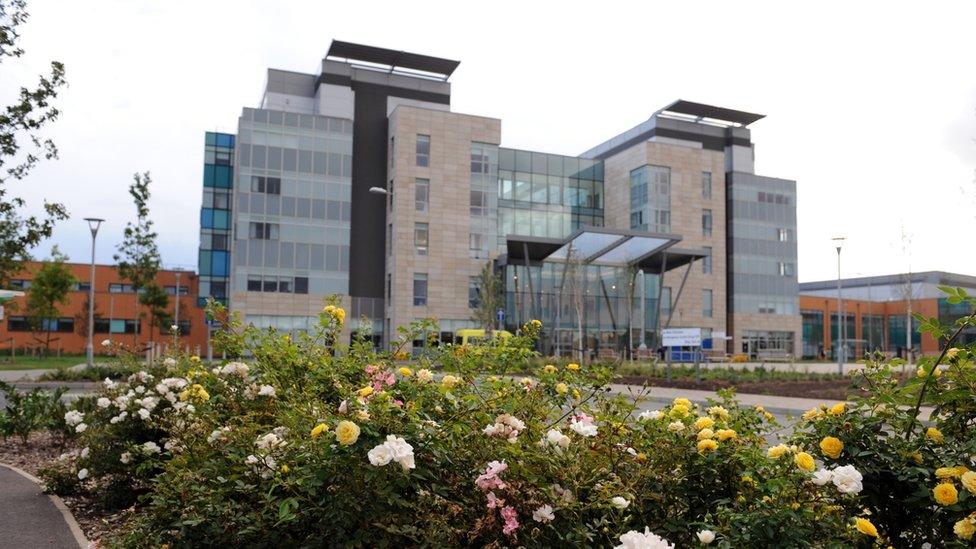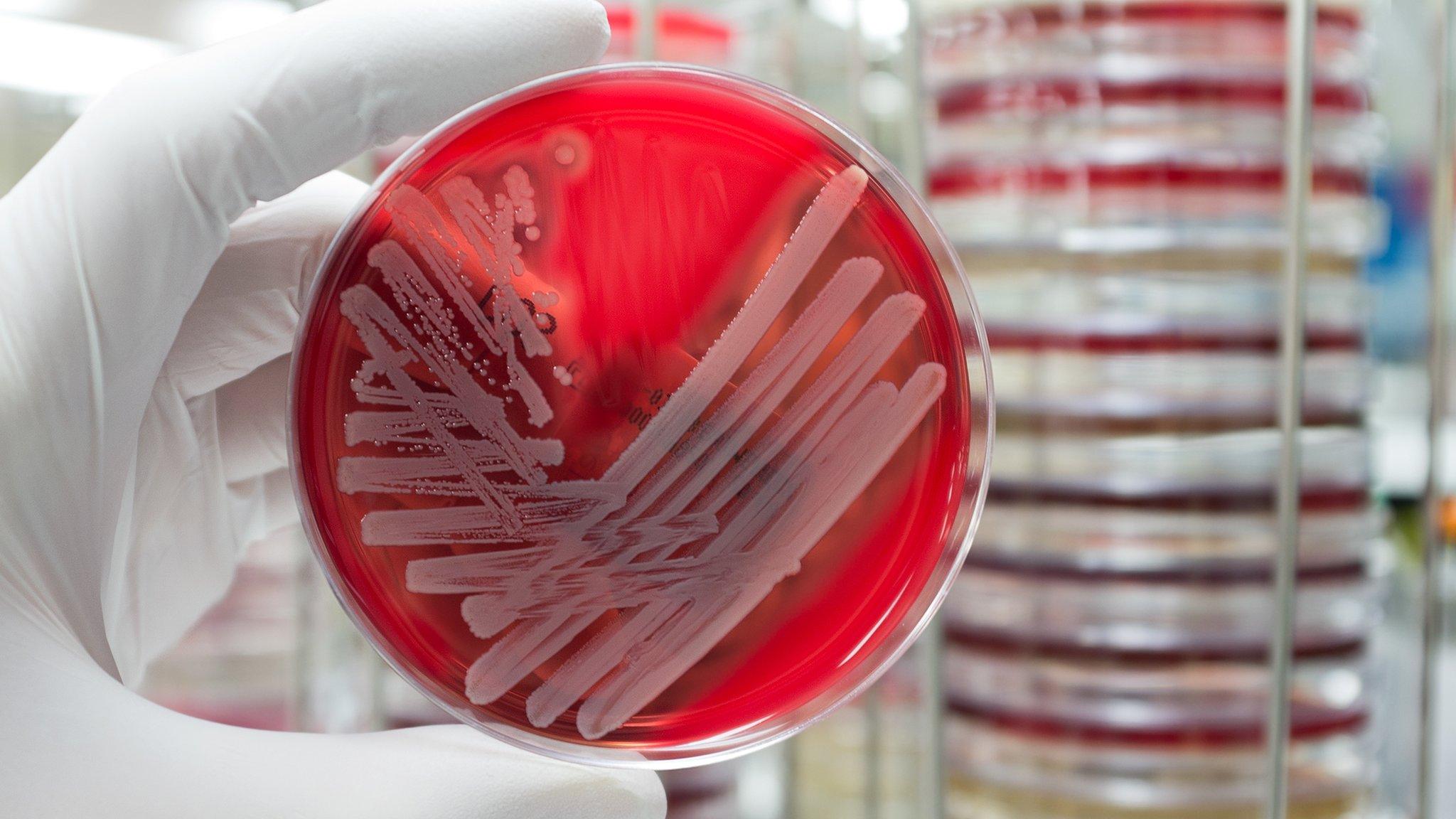Pontefract Hospital trials nasal laser treatment to stop surgical infections
- Published

The treatment involves a red light being shone into patients' nasal cavities
A pioneering laser treatment which could cut the risk of drug-resistant infections after operations is being trialled for the first time in the UK.
A six-month NHS pilot will see 500 patients given nasal disinfection at Pontefract Hospital in West Yorkshire.
The treatment involves a probe shining a red light into patients' nostrils to kill off bacteria which cause surgical site infections (SSIs).
The NHS hopes it could offer an alternative to antibiotics.
At present, patients are usually given nasal antibiotics before surgery to prevent potentially deadly infections such as MRSA. But there are growing concerns that rising antimicrobial resistance rates will render the drugs less effective.
Stuart Bond, consultant antimicrobial pharmacist at Pontefract Hospital, said he was "very excited" to be testing Ondine Biomedical's Steriwave red light treatment.
He told BBC Look North: "The good thing about this technology is it's not an antibiotic.
"We're introducing a light into the patient's nose and that can reduce the amount of microbes in the nose and therefore reducing the risk of infection after surgery."
Simon Jones, a consultant orthopaedic surgeon at the hospital, said "deep infection following a hip or knee replacement can be a devastating complication" for patients, typically extending hospital stays for several weeks.
Reducing infections would also free up beds for other patients, he added.

Simon Jones, consultant orthopaedic surgeon at Pontefract Hospital, said infections after surgery could be "devastating"
The red light treatment is already in use at hospitals in Canada, where the NHS said it had been shown to reduce post-surgery infection, shorten the length of hospital stays, and cut readmissions and antibiotics use.
SSIs cost the NHS an estimated £700m a year.
Mid-Yorkshire Teaching NHS Trust, which runs Pontefract Hospital, said it was "very pleased to be the first NHS trust in the UK to pilot this exciting, non-antibiotic method of preventing infections after surgery".
Results of the trial will be made public at a later date, it added.

Follow BBC Yorkshire on Facebook, external, Twitter, external and Instagram, external. Send your story ideas to yorkslincs.news@bbc.co.uk, external.
Related topics
- Published22 September 2022

- Published26 October 2017
